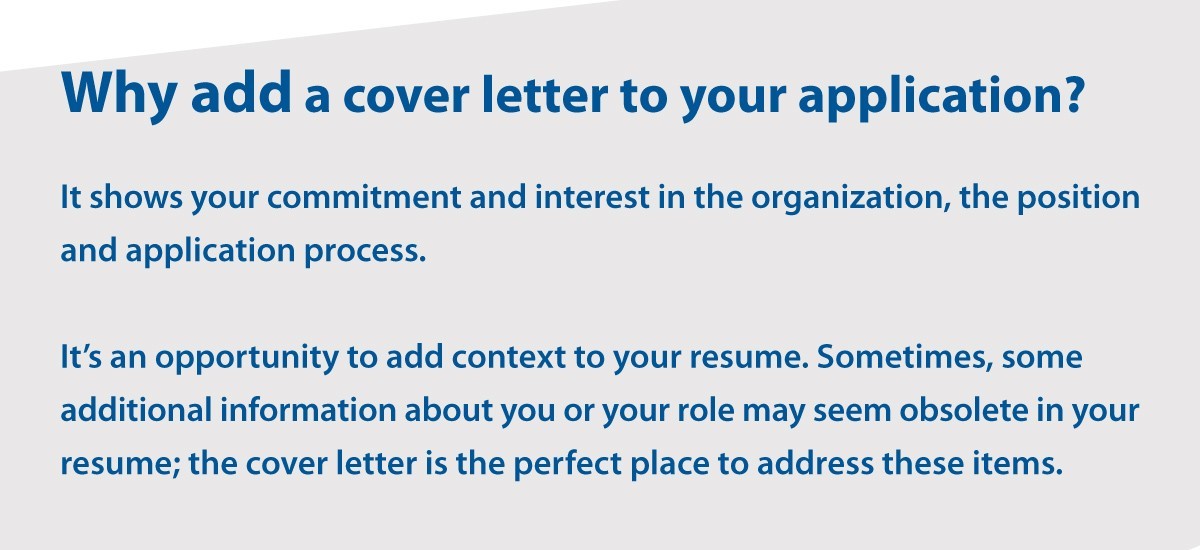The cover letter is not dead
Find out why sending out cover letters with your resume is still recommended.
The recruitment industry has encountered many transformations in the past two decades. In the past, applicants would apply to job postings published in their local newspaper or signs and ads displayed outside on business’ premises or billboards, while the more proactive candidates would hand out print-outs of their resumes to company representatives or cold-call targeted organizations for hiring information and opportunities.
With the introduction of online job boards in the 1990’s and the consecutive digital transformation resulting in the development of Social Media sites such as LinkedIn and Glassdoor, along with the emergence of a myriad of CRM and automatization tools in the first decade of the 2000’s, the HR industry has transformed into one that is dynamic like never before.
Collaterally, the job application process has changed, too. With emerging trends, technology advancements and industry refinements, applicants can now apply with virtually one click, automatically uploading or linking their resume. Platforms such as LinkedIn may seem to make it excessive to attach a cover letter to the job application, but this could not be further away from the truth.

Besides showing the organization you're applying to that you took the time and special effort to compose a dedicated letter for them, the cover letter is also the perfect opportunity to add anything that you want to touch on or explain into more detail that pertains your work experience, skill set, education or even any potential red flags that may show in your resume (e.g. an extremely short work experience that stands out).
What constitutes a good cover letter?
• The cover letter should be a targeted letter specifically written for the position/organization you’re applying to. There is nothing worse than sending out a generic letter. These letters are simply full of non-specifics, common buzzwords and clichés. It takes time, effort and commitment to write cover letters specifically for the job and organization that you’re applying to. That’s what makes them good. 😊
• List your reasons for applying, how you can contribute to the role/organization and any additions to your resume. This is NOT a summary of your resume. This is about you – your personality, your competencies and how you see your future if you were hired for the job. Be careful though, you may be tempted to itemize all of your skills, but those are already listed in your resume – instead, highlight those important for the job. This will also push you to do extensive research on the organization you’re applying to; something that will benefit you in more than one way going forward.
• Match the organization’s values and job specifics to yours. Where do you overlap? What is important to them that is important to you? While you’re at it, sometimes you may find they match minimally - saving you and the organization time and resources invested in the selection process, or even beyond!
• Be concise and straight to the point, but make sure to cover all the potential pain points in your resume that lack context.
Are you prepared for what lies ahead?
Reach out and see how we can help you prepare for challenges in the work force. This is a great time to connect through an online meeting with us at Smart Group by simply sending an e-mail with your contact information: contact@smartgroup.hr.
